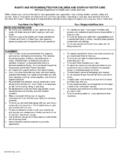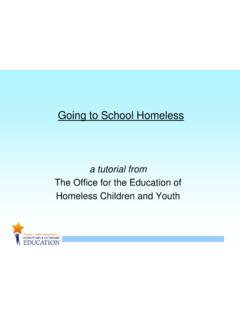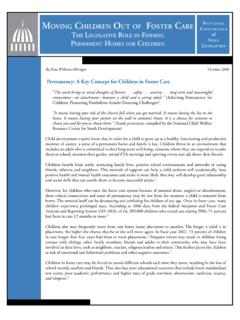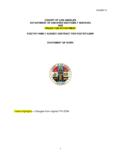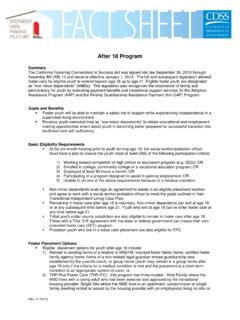Transcription of PREPARING OUR YOUTH FOR AN INCLUSIVE AND ... - OECD
1 PREPARING . OUR YOUTH FOR. AN INCLUSIVE AND. SUSTAINABLE WORLD. The OECD PISA. global competence framework Foreword INTRODUCTION: THE IMPORTANCE OF. AN INTERNATIONAL. GLOBAL. Contents COMPETENCE. Reinforcing global competence is vital for In 2015, 193 countries committed ASSESSMENT. individuals to thrive in a rapidly changing to achieving the UN's 17 Sustainable world and for societies to progress without Development Goals (SDGs), a shared vision leaving anyone behind. Against a context of humanity that provides the missing piece in which we all have much to gain from of the globalisation puzzle.
2 The extent to THE CONCEPT. growing openness and connectivity, and which that vision becomes a reality will THE ASSESSMENT. OF GLOBAL. OF GLOBAL. much to lose from rising inequalities and depend on today's classrooms; and it is THE DIMENSIONS COMPETENCE AND. COMPETENCE THE ASSESSMENT. OF GLOBAL ITS IMPLICATIONS. radicalism, citizens need not only the skills educators who hold the key to ensuring that COMPETENCE IN PISA STRATEGY. FOR EDUCATION. to be competitive and ready for a new world the SDGs become a real social contract of work, but more importantly they also with citizens.
3 Goal 4, which commits to need to develop the capacity to analyse quality education for all, is intentionally THE BUILDING. BLOCKS OF GLOBAL. and understand global and intercultural not limited to foundation knowledge and COMPETENCE THE COGNITIVE SELF-REPORTED. TEST ON GLOBAL INFORMATION IN. issues. The development of social and skills such as literacy, mathematics and KNOWLEDGE, UNDERSTANDING THE STUDENT. SKILLS, ATTITUDES QUESTIONNAIRE. emotional skills, as well as values like science, but places strong emphasis on AND VALUES. CONCLUSIONS respect, self-confidence and a sense of learning to live together sustainably.
4 But belonging, are of the utmost importance such goals are only meaningful if they to create opportunities for all and advance become visible. This has inspired the a shared respect for human dignity. The OECD Programme for International Student OECD is actively working on assessing Assessment (PISA), the global yardstick global competence in PISA 2018. Together, for educational success, to include global we can foster global competence for more competence in its metrics for quality, equity ILLUSTRATIVE. EXAMPLES OF. INCLUSIVE societies. and effectiveness in education.
5 PISA will REFERENCES ANNEXES SCENARIOS FOR. THE COGNITIVE. assess global competence for the first time ASSESSMENT. Gabriela Ramos ever in 2018. In that regard, this framework OF GLOBAL. UNDERSTANDING. OECD Chief of Staff and Sherpa to the G20. provides its conceptual underpinning.. QUESTIONS. Andreas Schleicher DESCRIPTION. RELATED TO GLOBAL. OF POSSIBLE. Director, OECD Directorate for Education TOPICS FOR THE COMPETENCE. and Skills, and Special Advisor on Education SCENARIOS OF THE IN THE STUDENT. COGNITIVE TEST QUESTIONNAIRE. Policy to the Secretary-General This framework is the product of a collaborative effort between the countries participating in PISA and the OECD Secretariat, under the guidance of Andreas Schleicher and Yuri Belfali.
6 The framework was developed by Mario Piacentini with Martyn Barrett, Veronica Boix Mansilla, Darla Deardorff and Hye-Won Lee. Rose Bolognini and Natalie Foster edited the framework. Natasha Robinson provided excellent research assistance and Mattia Baiutti, helpful comments. This framework builds on earlier work by the experts who led the first phase of development of the assessment: Darla Deardorff, David Kerr, Peter Franklin, Sarah Howie, Wing On Lee, Jasmine B-Y Sim and Sari Sulkinen. The OECD. would also like to thank Project Zero at Harvard University for their invaluable input and dissemination efforts.
7 Immigrants in numerous countries, communities people tend to flock together (Zuckerman, have to redefine their identity and local culture. 2014) favouring interactions with a small set of Contemporary societies call for complex forms people with whom they have much in common. of belonging and citizenship where individuals Likewise, access to an unlimited amount of must interact with distant regions, people and information is often paired with insufficient ideas while also deepening their understanding media literacy, meaning that young people are Introduction: of their local environment and the diversity within their own communities.
8 By appreciating easily fooled by partisan, biased or fake news. In this context, cultivating students' global The importance of an the differences in the communities to which competence can help them to capitalise on they belong - the nation, the region, the city, the digital spaces, better understand the world neighbourhood, the school young people can they live in and responsibly express their voice international global learn to live together as global citizens (Delors et al., 1996; UNESCO, 2014b). While education online. competence assessment cannot bear the sole responsibility for ending To support the Sustainable Development racism and discrimination, it can teach young Goals people the importance of challenging cultural biases and stereotypes.
9 Finally, educating for global competence can help form new generations who care To thrive in a changing labour market about global issues and engage in tackling Twenty-first century students live in an significant to both the world at large and to social, political, economic and environmental interconnected, diverse and rapidly changing their own lives. They can teach students how Educating for global competence can boost challenges. The 2030 Agenda for Sustainable world. Emerging economic, digital, cultural, to critically, effectively and responsibly use employability.
10 Effective communication and Development recognises the critical role of demographic and environmental forces are digital information and social media platforms. appropriate behaviour within diverse teams are education in reaching sustainability goals, shaping young people's lives around the planet, Schools can encourage intercultural sensitivity keys to success in many jobs, and will remain calling on all countries to ensure, by 2030, that and increasing their intercultural encounters and respect by allowing students to engage so as technology continues to make it easier for all learners acquire the knowledge and skills on a daily basis.










